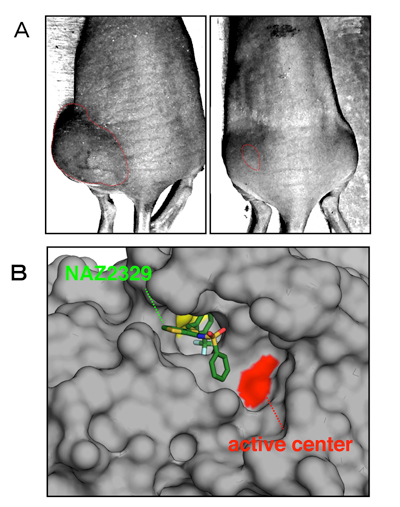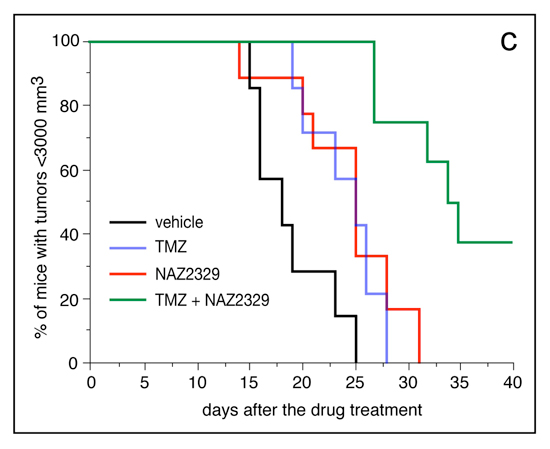
National Institute for Basic Biology




2017.07.17
Glioblastoma is the most malignant brain tumor with high mortality. Cancer stem cells are thought to be crucial for tumor initiation and its recurrence after standard therapy with radiation and temozolomide (TMZ) chemotherapy.Protein tyrosine phosphatase receptor type Z (PTPRZ) is an enzyme that is highly expressed in glioblastoma, especially in cancer stem cells.
The research group of Professor Masaharu Noda and Researcher Akihiro Fujikawa of the National Institute for Basic Biology (NIBB) showed that the enzymatic activity of PTPRZ is requisite for the maintenance of stem cell properties and tumorigenicity in glioblastoma cells.
PTPRZ knockdown strongly inhibited tumor growth of C6 glioblastoma cells in a mouse xenograft model (Fig. A: The left and right show xenograft tumors of parental cells and PTPRZ knockdown cells, respectively). In addition, the research team discovered NAZ2329, an allosteric inhibitor of PTPRZ, in collaboration with ASUBIO Pharma Co. Ltd. (Fig. B: NAZ2329 bound to an allosteric pocket close to the active center of PTPRZ). NAZ2329 efficiently suppressed stem cell-like properties of glioblastoma cells in culture, and tumor growth in C6 glioblastoma xenografts (Fig. C: Tumor growth was inhibited more effectively by co-treatment with NAZ2329 and TMZ than by the individual treatments). These results indicate that pharmacological inhibition of PTPRZ is a promising strategy for the treatment of malignant gliomas.
The results of this research were published in ‘Scientific Reports’ on July 17th, 2017.


Article Information